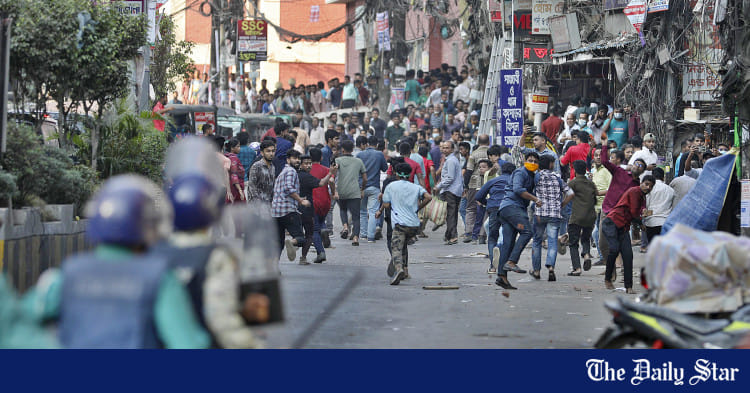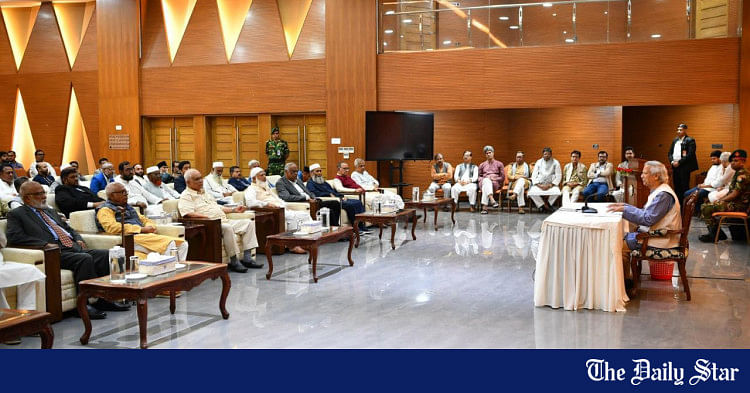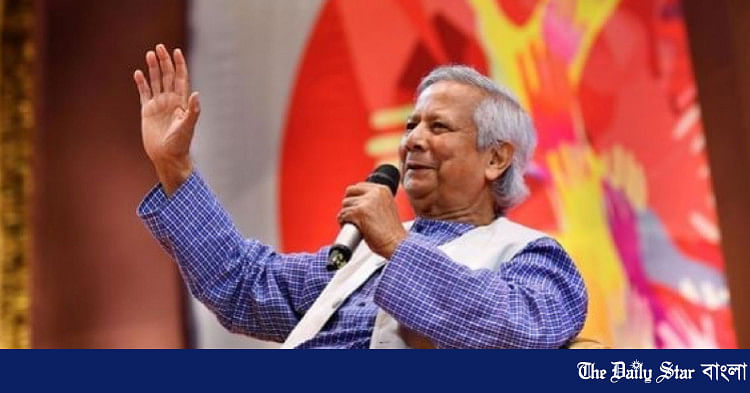Saif
Senior Member
- Messages
- 17,481
- Likes
- 8,438
- Nation

- Residence

- Axis Group


For the sake of stability
After a mass uprising or revolution leading to the fall of an unpopular government or controversial ruler of any country, people there usually have to endure a period of unrest. In Bangladesh too violence sparked and spread due to a spree of retaliation and revenge; various groups came to the stree
For the sake of stability
Tanim Asjad
Published :
Nov 29, 2024 23:24
Updated :
Nov 29, 2024 23:24

After a mass uprising or revolution leading to the fall of an unpopular government or controversial ruler of any country, people there usually have to endure a period of unrest. In Bangladesh too violence sparked and spread due to a spree of retaliation and revenge; various groups came to the streets with multiple demands, and the agents of ousted government tried to shield them from backlash. Overall, chaos has gripped the nation for the time being. It will take sometime to settle the dust. It doesn't mean that normalcy would come back automatically. Those in charge of the country in this transitional period must work hard to restore stability.
After August 5, Bangladesh slid into a period of chaos, which is not unusual. An unprecedented student-people movement forced the tyrant Sheikh Hasina to step down and flee to India for shelter. People across the country celebrated the historic moment and felt free to express their opinions, which were otherwise muted by her regime. Led by students and youths, the movement against state-sponsored discrimination gained widespread support. Many also have termed the movement a revolution, as it made a monumental transition that most people had considered impossible even a few days before August 5. Arrogant Hasina also had undermined the movement and failed to read the writing on the wall.
Following the downfall of Hasina, Dr Prof Muhammad Yunus took over the responsibility of running the interim government. This government is tasked to play a crucial role of restoring stability and preparing the nation for a free and fair national election. The government headed by him has been in power for more than 100 days but the country's socio-economic stability is yet to be in sight. Instead, disorder and unrest have been capturing various spheres of life. The government's proactive move to restore law and order is missing.
The immediate past week was disappointing for various reasons. Battery-run rickshaw pullers blocked the busy roads and streets and attacked students. They protested against the high court order to stop operations of the battery-run rickshaws on main roads, which they believed would severely impact their livelihoods. Students of several educational institutions got involved in clashes turning the situation violent. The worst thing happened on Monday when a group of students from two colleges attacked another college. Law enforcement agencies failed to resist the attackers. Again, in the name of disbursing interest-free loans, a little-known organisation tried to assemble thousands of ordinary people from different parts of the country in Dhaka. All these have seriously disrupted the regular activities of millions of people and caused a lot of sufferings to them. Continuation of such anarchy will make the restoration of stability more difficult.
There is no denying that the previous regime had severely damaged the key national institutions and politicised the civil administration. Hasina regime also distorted the norms and ethics in different institutions and promoted irregularities and corruption. So, it is an uphill task for the interim government to correct all those within a short period and make the civil administration well-functioning.
Nevertheless, the interim government has taken responsibility at a critical juncture of the nation. It cannot fix all the deep-rooted problems. The main tasks of the interim government ought to be restoring socio-economic stability, starting the process of trial of the ousted regime for corruption and murder, and creating a conducive environment for a free and fair national election. These are tough jobs requiring some tough stance, no matter how unpopular those would be. After 100 days' soft-pedalling, it is now time to opt for a hard approach involving stringent measures for the sake of the country's overall stability. Otherwise, things may go out of control, and the outcome of the mass uprising at the cost of huge sacrifices would be frustrating.
Tanim Asjad
Published :
Nov 29, 2024 23:24
Updated :
Nov 29, 2024 23:24
After a mass uprising or revolution leading to the fall of an unpopular government or controversial ruler of any country, people there usually have to endure a period of unrest. In Bangladesh too violence sparked and spread due to a spree of retaliation and revenge; various groups came to the streets with multiple demands, and the agents of ousted government tried to shield them from backlash. Overall, chaos has gripped the nation for the time being. It will take sometime to settle the dust. It doesn't mean that normalcy would come back automatically. Those in charge of the country in this transitional period must work hard to restore stability.
After August 5, Bangladesh slid into a period of chaos, which is not unusual. An unprecedented student-people movement forced the tyrant Sheikh Hasina to step down and flee to India for shelter. People across the country celebrated the historic moment and felt free to express their opinions, which were otherwise muted by her regime. Led by students and youths, the movement against state-sponsored discrimination gained widespread support. Many also have termed the movement a revolution, as it made a monumental transition that most people had considered impossible even a few days before August 5. Arrogant Hasina also had undermined the movement and failed to read the writing on the wall.
Following the downfall of Hasina, Dr Prof Muhammad Yunus took over the responsibility of running the interim government. This government is tasked to play a crucial role of restoring stability and preparing the nation for a free and fair national election. The government headed by him has been in power for more than 100 days but the country's socio-economic stability is yet to be in sight. Instead, disorder and unrest have been capturing various spheres of life. The government's proactive move to restore law and order is missing.
The immediate past week was disappointing for various reasons. Battery-run rickshaw pullers blocked the busy roads and streets and attacked students. They protested against the high court order to stop operations of the battery-run rickshaws on main roads, which they believed would severely impact their livelihoods. Students of several educational institutions got involved in clashes turning the situation violent. The worst thing happened on Monday when a group of students from two colleges attacked another college. Law enforcement agencies failed to resist the attackers. Again, in the name of disbursing interest-free loans, a little-known organisation tried to assemble thousands of ordinary people from different parts of the country in Dhaka. All these have seriously disrupted the regular activities of millions of people and caused a lot of sufferings to them. Continuation of such anarchy will make the restoration of stability more difficult.
There is no denying that the previous regime had severely damaged the key national institutions and politicised the civil administration. Hasina regime also distorted the norms and ethics in different institutions and promoted irregularities and corruption. So, it is an uphill task for the interim government to correct all those within a short period and make the civil administration well-functioning.
Nevertheless, the interim government has taken responsibility at a critical juncture of the nation. It cannot fix all the deep-rooted problems. The main tasks of the interim government ought to be restoring socio-economic stability, starting the process of trial of the ousted regime for corruption and murder, and creating a conducive environment for a free and fair national election. These are tough jobs requiring some tough stance, no matter how unpopular those would be. After 100 days' soft-pedalling, it is now time to opt for a hard approach involving stringent measures for the sake of the country's overall stability. Otherwise, things may go out of control, and the outcome of the mass uprising at the cost of huge sacrifices would be frustrating.








